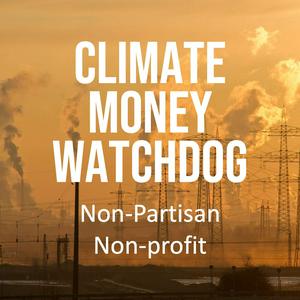A Law Firm Just for Whistleblowers - Poppy Alexander
We’re delighted to welcome back Poppy Alexander, a founding partner at the law firm Whistleblower Partners, a law firm dedicated to representing whistleblowers reporting fraud and misconduct in:HealthcareProcurementSecurities and CommoditiesTaxesMoney Laundering and Sanctions EvasionCustomsEnvironmental RemediationVehicle SafetyPoppy represents whistleblowers and government entities in qui tam lawsuits, as well as under the various agency whistleblower programs including those administered by the Internal Revenue Service, Securities and Exchange Commission, FinCEN, Commodity Futures Trading Commission, and Department of Transportation. Poppy’s practice focuses on issues of international corruption and financial misconduct, with a specialty in the Foreign Corrupt Practices Act and money laundering cases. She writes and speaks regularly about emerging topics in financial fraud, including sanctions violations, SPACs, and cryptocurrency.We last spoke with Poppy back in July of 2022 when she had already established an impressive track record representing whistleblowers at Constantine Cannon. She graduated from Harvard Law School in 2012. She was the co-editor-in-chief of the Harvard Civil Rights-Civil Liberties Law Review and an active participant in the Human Rights Clinic, working on issues related to corporate accountability for human rights violations in Africa and military abuses in Southeast Asia. She was awarded the Dean’s Award for Community Leadership in recognition for her contributions to the school community. Poppy has been named to the Super Lawyers Rising Stars list every year since 2016. Prior to law school, Poppy worked on election reform issues before beginning graduate work at the University of California, Berkeley, where she studied political and critical theory.We’ve invited Poppy to talk about her new work, and her new firm, Whisteblower Partners.Topics Discussed Include:Poppy’s new law firm, Whistleblower Partners. Why Poppy left her old firm to establish this new legal partnership in March 2024. She describes a comprehensive approach to whistleblowers and not just file cases.The laws Whistleblower Partners uses in environmental cases and how they have changed since the episode we published in July 2023. Qui tam False Claims Act, SEC, IRS, Act to Prevent Pollution from Ships (APPS), and various wildlife protection laws.Examples of Whistleblower Partners victories.Pitfalls of whistleblowing and filing lawsuits and administrative tips programs. Further Reading / Topics Discussed in this Episode:Mighty Earth vs. JBS in protecting the Brazilian rainforestThe Securities and Exchange Commission’s 90th birthdaySupport the showVisit us at climatemoneywatchdog.org!
